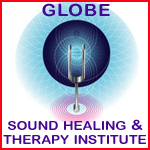http://www.apa.org/monitor/2013/11/music.aspx
(American Psychological Association)
The beep of ventilators and infusion pumps, the hiss of oxygen, the whir of carts and the murmur of voices as physicians and nurses make rounds — these are the typical noises a premature infant hears spending the first days of life in the neonatal intensive care unit (NICU). While the sounds of such life-saving equipment are tough to mute, a new study suggests that some sounds, such as lullabies, may soothe pre-term babies and their parents, and even improve the infants’ sleeping and eating patterns, while decreasing parents’ stress (Pediatrics, 2013).
Researchers at Beth Israel Medical Center’s Louis Armstrong Center for Music and Medicine conducted the study, which included 272 premature babies 32 weeks gestation or older in 11 mid-Atlantic NICUs. They examined the effects of three types of music: a lullaby selected and sung by the baby’s parents; an “ocean disc,” a round instrument, invented by the Remo drum company, that mimics the sounds of the womb; and a gato box, a drum-like instrument used to simulate two-tone heartbeat rhythms. The two instruments were played live by certified music therapists, who matched their music to the babies’ breathing and heart rhythms.
The researchers found that the gato box, the Remo ocean disc and singing all slowed a baby’s heart rate, although singing was the most effective. Singing also increased the amount of time babies stayed quietly alert, and sucking behavior improved most with the gato box, while the ocean disc enhanced sleep. The music therapy also lowered the parents’ stress, says Joanne Loewy, the study’s lead author, director of the Armstrong center and co-editor of the journal Music and Medicine.
“There’s just something about music — particularly live music — that excites and activates the body,” says Loewy, whose work is part of a growing movement of music therapists and psychologists who are investigating the use of music in medicine to help patients dealing with pain, depression and possibly even Alzheimer’s disease. “Music very much has a way of enhancing quality of life and can, in addition, promote recovery.”

Recent Comments